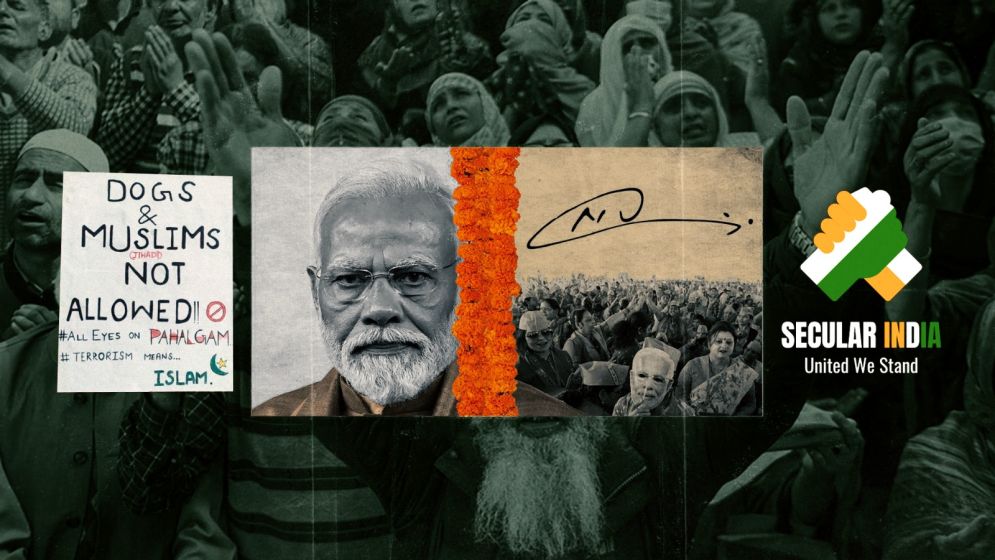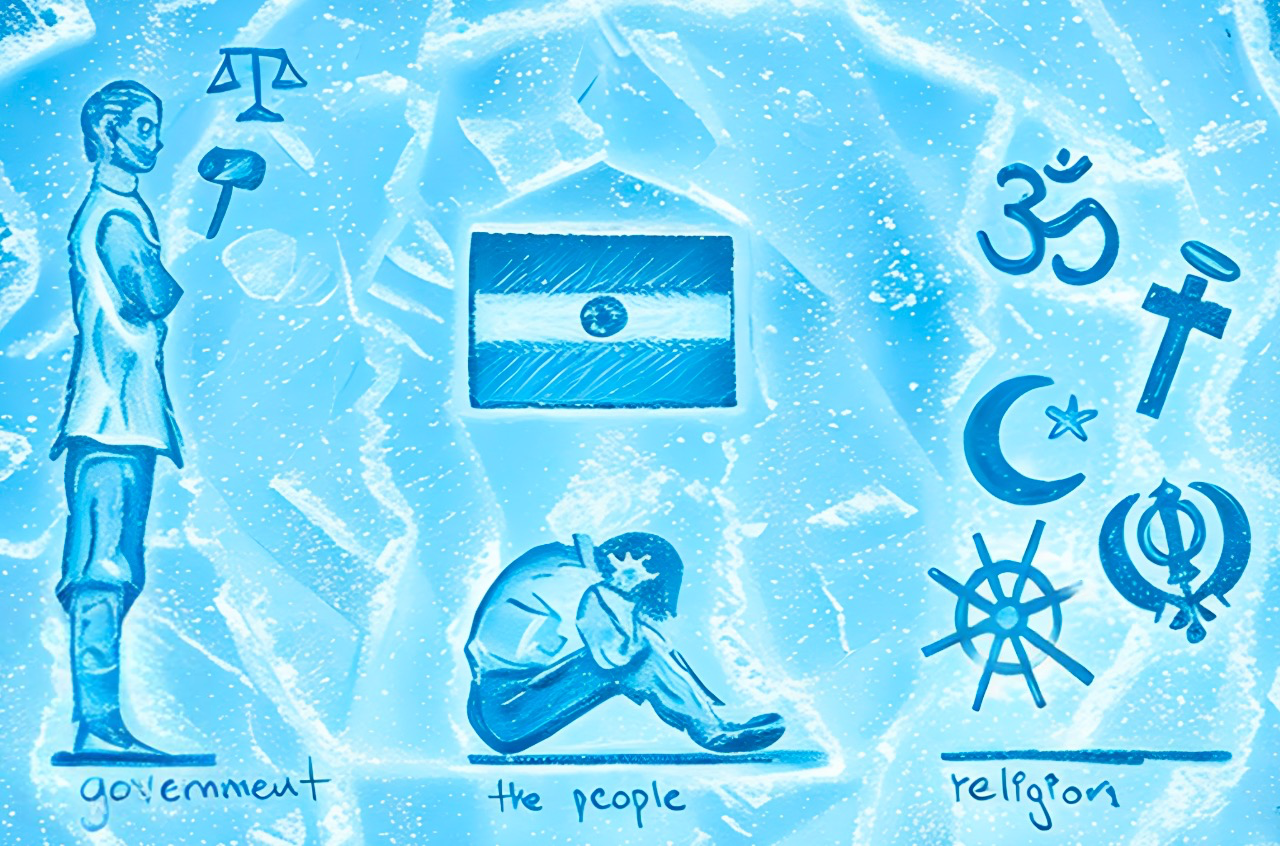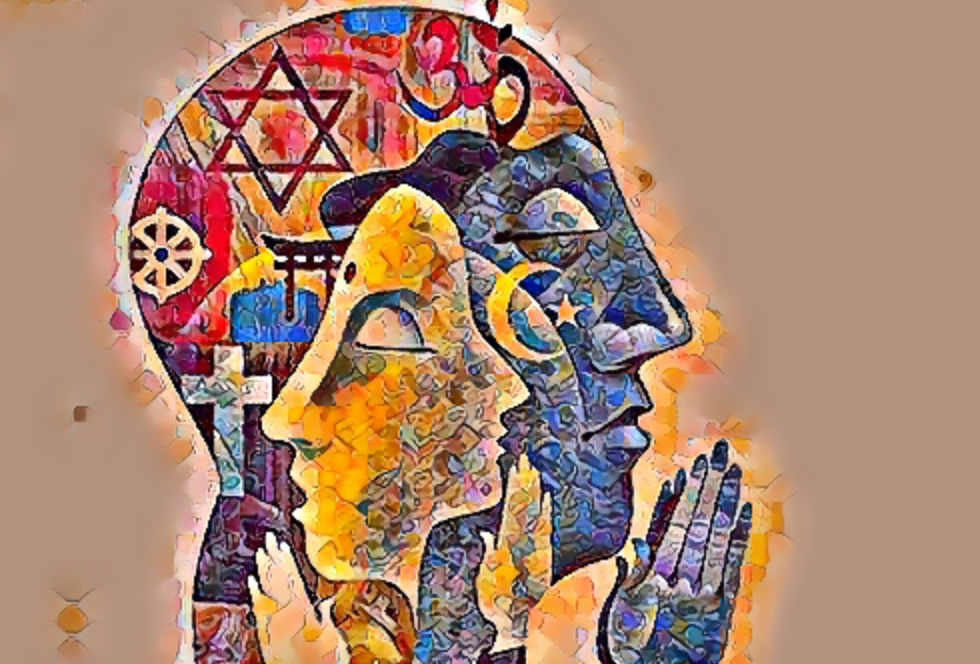Why does Islamophobia become ‘secular’ India’s default setting after every terrorist attack

In a corner of a university campus in India, someone scribbled a phrase on the notice board: “Dogs and Muslims are prohibited from entering.”
That wasn’t just hate speech — it was a desecration. It was a posthumous rejection of men like Shaheed Sena Commando Jhantu Ali Sheikh, who died defending this very nation.
Sheikh was a son of Nadia, a symbol of sacrifice. His blood still soaks the soil of Udhampur, spilled while fighting terrorists in the wake of the brutal Pahalgam massacre.
His death should have been a national moment of unity. Instead, his memory is met with silence—or worse, with bigotry scrawled on institutional walls.
And what of Akali Bibi and Sabur Ali, his grieving parents? Pressing their son's photo to their chests, they ask a question no citizen of any republic should have to utter: “Our son died proving which side we belong to?” That question should haunt us all.
This isn’t an isolated story. Syed Adil Hussain Shah—a Kashmiri pony handler, not a soldier—died trying to protect tourists from gunfire. He attempted to wrest a rifle from a terrorist’s hands and was riddled with bullets.
And yet, in the eyes of a country spiraling into ethno-religious hysteria, his Muslim identity erases his heroism.
Make no mistake: what we’re witnessing in India after the Pahalgam massacre is not merely grief. It’s a carefully curated campaign of Islamophobia. Across newsrooms and on evening talk shows, Hindutva voices insist on one message: that India belongs to Hindus alone.
So what if Muslims die for the country? So what if they fight terrorists, shield innocents, give their lives? The BJP-RSS machinery marches on, with its project to paint Muslims as perpetual outsiders, traitors to the nation—even when they are found in uniform, defending the very land that now excludes them.
The Indian Constitution, the one that promises secularism, inclusion, and equal citizenship, is under siege. Not just by mobs, but by televised panels debating whether that secularism itself needs "correction."
And all this while the state’s own ultra-nationalist propaganda escapes the label of anti-nationalism–because nationalism in Modi’s India is no longer about love for all Indians. It is about loyalty to a majoritarian fantasy.

A fractured ‘secular’ nation
Let us be clear: The terrorists who killed innocent tourists in Kashmir deserve no mercy. They are enemies of peace, of Kashmir, of humanity. But alongside our grief and anger, there must also be accountability.
Who failed to provide security for these tourists? Who offered reassurances of safety? And who will answer for the lapse that allowed this tragedy to happen?
In a just republic, those questions would be asked loudest by the government itself. In today’s India, they are drowned out by chants demanding exclusion, hatred, and the rewriting of the republic itself.
And so, the blood of martyrs like Jhantu Ali Sheikh and Adil Hussain Shah is quietly pushed aside–not because they didn’t die for India, but because of who they were when they lived.
Prime Minister Narendra Modi and Home Minister Amit Shah have stood before the nation, time and again, assuring us that terrorism has been “broken” in Kashmir.
Article 370 was revoked, they said, to bring peace and stability. Kashmir, we were told, is now safe. Tourists believed them. Families believed them. That’s why people were in Pahalgam. That’s why they died.
So, were those declarations lies? Or were they political theater–a curated illusion of control, broadcast to win elections but not to ensure safety? And now, after the massacre of unarmed civilians, where is the accountability?
When the 2008 Mumbai attacks shook India, the then-Home Minister Shivraj Patil resigned, acknowledging responsibility. He didn’t hide behind slogans or media spin.
Today, as families bury loved ones slain in Kashmir, as grief grips homes that had only packed bags for a holiday–not a funeral–who in this government will step down? Who will say, “This was our failure”? Why is resignation, the smallest gesture of moral responsibility, too much to ask?
The fact is, under Modi’s watch, terror attacks have continued. Pathankot. Uri. Pulwama. And now Pahalgam. One after another. How long can this government boast of “crushing terrorism” while coffins keep arriving?
But rather than facing this failure, the government pivots—as it always does—to Islamophobia. The focus is shifted from incompetence to communal fear. Muslims, once again, are turned into political scapegoats.

Where lies the real problem
The narrative however is manufactured: not “why did this happen under our watch?” but “what community did the attackers belong to?” This is not national security. This is political deflection.
Meanwhile, thousands of Kashmiris–most of them Muslims–have taken to the streets to condemn the violence, to mourn the victims, to denounce terrorism. But these voices are deliberately silenced.
They don’t fit the ruling party’s narrative. To acknowledge these protests would be to accept that being Muslim is not synonymous with being anti-national.
And if “terrorist” automatically means “Muslim” in the popular imagination being fed by TV studios and WhatsApp forwards, then what do we make of the Malegaon blasts?
The National Investigation Agency recently asked for the maximum punishment, including the death penalty, for BJP leader and former Member of Parliament Sadhvi Pragya Singh Thakur. Was she a Muslim too?
This is where the double standard is laid bare. Lashkar-e-Taiba has no place in this country. But neither does Hindutva extremism. Those who wrap bombs in saffron should be treated no differently than those who do it under any other banner.
Terrorism has no religion—unless you're using it to build an election campaign.
And now, once again, we are at a moment that demands courage. A moment where silence is complicity. A moment when to remain neutral is to stand on the side of propaganda and power.
Yes, this country belongs to Hindus. But it also belongs to Muslims, to Christians, to Sikhs, to atheists, to every citizen who believes in the republic. It belongs to the memory of Ashfaqulla Khan as much as to Bhagat Singh.
It belongs to the blood of Shaheed Jhantu Ali Sheikh just as it belongs to the legacy of Khudiram Bose. It belongs to Bharat Ratna Maulana Abul Kalam Azad. These are not footnotes in history books. These are foundational pillars.
The secular fabric of India wasn’t gifted to us by chance. It was built, thread by thread, by people who died for it. That fabric is now being torn apart–not by terrorists alone, but by those in power who have chosen division over unity, hate over healing.
But they will not succeed. Because we, the people, will not let them. Hindu, Muslim, Sikh, Christian, atheist—we are the republic. And we will not surrender it to fear.
—-
Arka Bhaduri is a Kolkata based journalist, researcher, explorer and storyteller.

